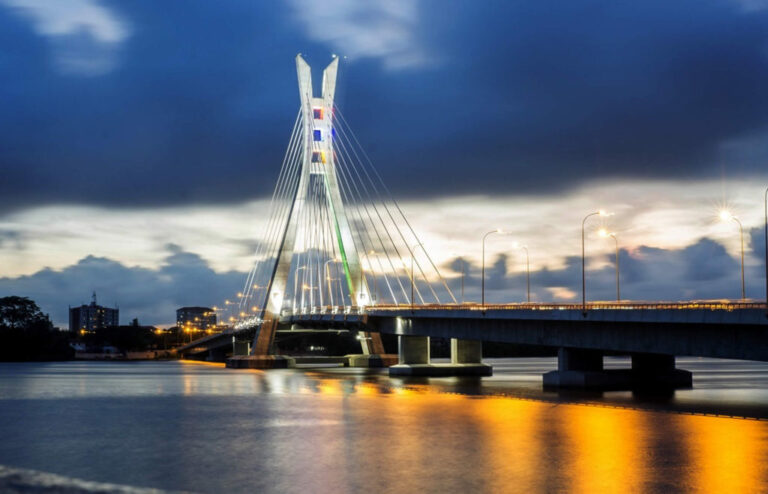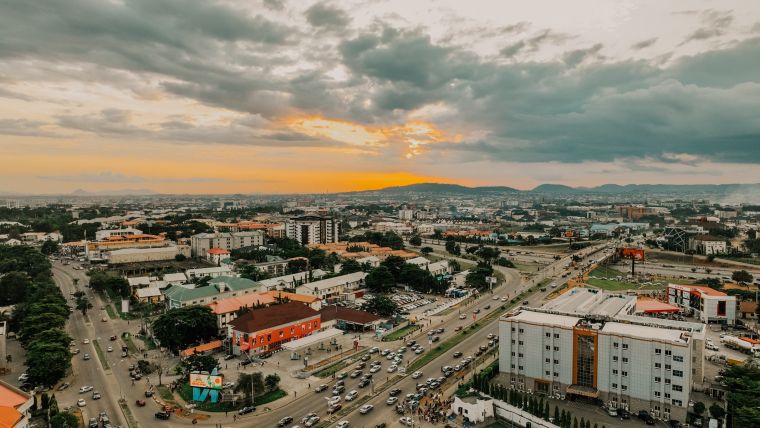TL;DR
Explore Nigeria’s most breathtaking natural attractions—from the cool heights of Mambilla Plateau to the unique warmth of Ikogosi Warm Springs.
This guide offers expert reviews, personal insights, updated visitor info, and practical tips to help you experience Nigeria’s diverse landscapes like a local.
The Serene Mambilla Plateau: Nigeria’s Cooling Escape in Taraba State
Nestled in Taraba State, the Mambilla Plateau is a hidden gem revered for its crisp, cool climate and expansive green landscapes, reaching altitudes of over 1,600 meters. My visit here was a refreshing break from the tropical heat, with breathtaking views of rolling hills, waterfalls, and tea plantations. This highland area is unlike anywhere else in Nigeria, with temperate weather that feels almost otherworldly.
Visitors praise the unmatched tranquility and outdoor activities like hiking through lush forests and camping under starlit skies. The plateau’s rich cultural heritage, blending the Mambilla people’s customs, makes it a fascinating visit beyond the natural beauty.
Insider Tip: Stay overnight at one of the lodges near the Gashaka-Gumti Forest Reserve for wildlife safaris and spectacular sunrises.
Current Visitor Info: Entry is free; local guides are available at reasonable rates. Best visited during the dry season from November to March.
Obudu Mountain Resort: Nature’s Wonderland in Cross River State
Obudu Mountain Resort is undeniably one of Nigeria’s most iconic natural retreats. As I explored its lush mountainous terrain, cable cars, and inviting pools, it felt like stepping into a postcard-perfect paradise. Situated in Cross River State, the resort beautifully blends natural scenery with well-designed amenities.
The temperate atmosphere, rare bird sightings, and scenic hiking trails make it perfect for nature lovers and adventurers alike. What stood out was the cable car ride that offers panoramic vistas of the verdant plateau and cascading waterfalls.
Practical Info: Entrance fees average ₦2,000 – ₦3,000. Cable car rides are extra but worth every naira. Visit during the dry months for the clearest skies.
Yusufari Sand Dunes: Exploring the Sahara’s Edge in Yobe State
The vast Yusufari Sand Dunes offer an extraordinary desert experience rarely associated with Nigeria’s diverse environment. Visiting this natural marvel, I was captivated by endless golden sands stretching across the horizon, creating a surreal landscape that is both humbling and exhilarating.
This area is a haven for photographers and adventurers seeking to experience Nigeria’s Sahel belt. Organized camel rides and sunset tours offer authentic desert exploration.
Visitor Details: Guided tours aretours are are recommended due to the remote location. Travel during cooler months (November to February) for comfortable trekking.
Wikki Warm Springs: A Natural Oasis in Bauchi State’s Yankari National Park
Swimming in the Wikki Warm Springs was one of my most unique experiences in Nigeria. Located inside Yankari National Park, these warm springs provide a relaxing contrast to Nigeria’s typical warm climate, maintaining a constant temperature of around 31–32°C.
The springs are enveloped by lush greenery and wildlife sounds, creating a spa-like natural retreat. It’s also family-friendly, offering a clean, safe environment for swimming and picnics. Pair your visit here with game drives within Yankari Park for a full nature escape.
Entry Fees: ₦3,000 for park entry, swimming area access included. Open daily from 7am to 6pm.
River Ethiope: West Africa’s Longest Inland River in Delta State
Flowing through dense rainforests and unique ecosystems, River Ethiope is a natural wonder worth exploring. What I loved most was the clarity of the water and the thrill of boating through lush landscapes fringed with indigenous wildlife.
It is also Nigeria’s deepest river, with stretches suitable for swimming, fishing, and picnics at designated locations. Nearby lodges provide excellent accommodation to soak in peaceful river life.
Visitor Essentials: Guided boat tours aretours are are available for approximately ₦5,000 per trip. Best experienced during the dry season (November to April).
Awhum Waterfall: Mystical Falls Amidst Enugu’s Mountains
Awhum Waterfall is both a natural beauty and a spiritual sanctuary. On my visit, the cool mist cascading down the cliff face offered a serene atmosphere, enriched by the presence of a historic monastery nearby.
The waterfall is surrounded by dense forest and caves, inviting exploration and quiet reflection. The gentle walk to the waterfall is family-friendly, and it’s a fantastic destination for those seeking peaceful nature combined with cultural depth.
Visitor Notes: Minimal entry fee (around ₦200). Open daily, but better visited early to avoid crowds.
Idanre Hills: Cultural and Scenic Majesty in Ondo State
Climbing Idanre Hills felt like stepping into history and nature simultaneously. The ancient hills are steeped in folklore and traditional practices, with the summit offering breathtaking views of Ondo’s landscapes.
The hike is moderately challenging but rewarding, including stops at ancient shrines, caves, and old settlements. I appreciated how this site harmonizes geology, anthropology, and ecology, making it a profound cultural and natural experience.
Visitor Tips: Guided tours are are recommended to fully understand the cultural narratives. Entry fee is about ₦1,000. Wear sturdy shoes.
Olumirin Waterfall: The Seven-Tiered Wonder in Erin-Ijesha, Osun State
Olumirin Waterfall is a spectacular multi-level cascade that mesmerized me from the moment I stepped inside Erin-Ijesha forest. Each tier offers distinct pools perfect for cooling off or picnicking, surrounded by towering trees and fresh mountain air.
Adventure seekers will enjoy the climb, as each level reveals a new perspective and natural beauty. Local guides share folklore associated with each tier, enriching the experience with cultural storytelling.
Visitor Info: Entry fee around ₦500; open daily from 8 am to 6 pm. Prepare to hike and bring water-resistant shoes.
International Institute of Tropical Agriculture (IITA): Innovation Meets Nature in Oyo State
Though not a traditional nature spot, IITA offers incredible botanical gardens and experimental farms that highlight Nigeria’s agricultural biodiversity. Visiting this research hub, I was impressed by the carefully curated plant collections and conservation efforts.
For eco-travelers and researchers, this is an invaluable place to observe exotic tropical species and learn about sustainable farming in Nigeria. The serene setting also makes it a peaceful retreat from city life.
Visitor Access: Appointments are recommended; entry may require prior booking. Contact via info@iita.org or +234 802 777 7010.
Ikogosi Warm Springs: Where Warm Meets Cold in Ekiti State
Ikogosi Warm Springs fascinated me with the rare natural phenomenon of warm and cold water springs flowing side-by-side without mixing. Bathing in the warm spring while watching the cold spring cascade nearby felt like nature’s own spa.
The park grounds surrounding the springs are well maintained, offering opportunities for hiking and birdwatching. It’s a serene escape steeped in natural wonder and local folklore.
Visitor Facts: Entry fee approximately ₦1,000. The resort offers lodging and guided nature walks. Best visited during the dry season (November to March).
Frequently Asked Questions
What is the best time to visit Nigeria’s natural attractions?
The dry season (November to March) is generally the best time as the weather is cooler and more stable, allowing easier access and outdoor activities without rain disruptions.
Are these natural attractions family-friendly?
Yes, most likely Wikki Warm Springs, Obudu Mountain Resort, and Olumirin Waterfall are safe for families, with facilities and guides available for a comfortable visit.
How do I get around visiting these attractions?
Most sites are accessible by car or organized tours. Hiring local guides is highly encouraged to maximize experience, especially in remote areas like Yusufari Sand Dunes or Mambilla Plateau.
Do I need special permits to visit any of these spots?
Generally, no special permit is required except standard entrance fees. However, research specific sites like IITA which may require prior booking.
Are there accommodation options near these attractions?
Many attractions, such as Obudu Mountain Resort, Ikogosi Warm Springs, and River Ethiope have nearby hotels or lodges. For remote spots, it is advisable to stay in the nearest towns and plan day trips.





